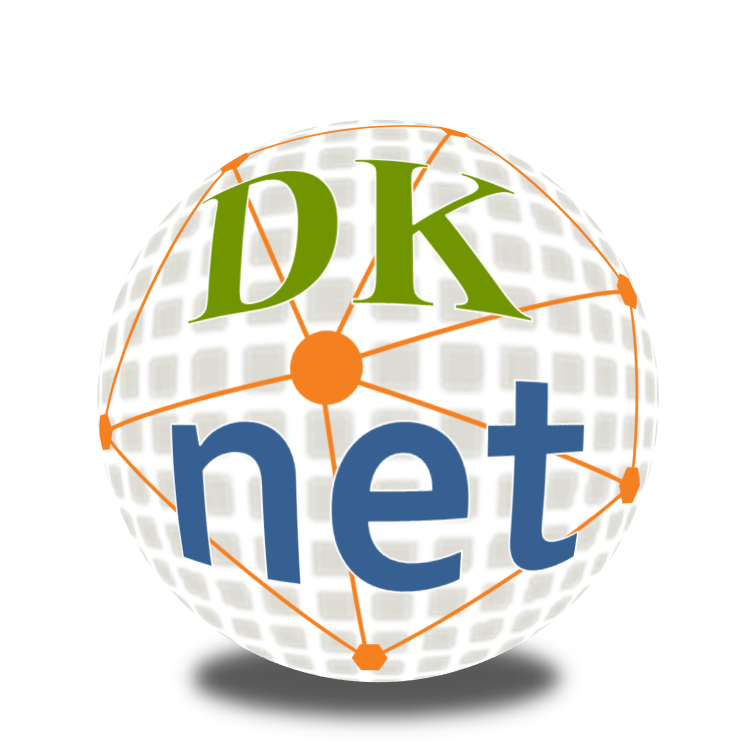Leaving Community
Are you sure you want to leave this community? Leaving the community will revoke any permissions you have been granted in this community.
2021 Summer Program Course
Day in a Life of a dkNET Student
Announcing
2021 dkNET Summer of Data
Student Program (Now Closed)
What our Previous Intern Awardees Say About the Program

"It was a valuable, engaging experience that taught me the importance of producing FAIR data. I learned efficient data management practices that I feel confident to utilize in my research and into my career."
- Mia Jeffris, Dr. Nathan Lewis’s lab, University of California San Diego

"...I gained a solid foundation of good data practices I can incorporate into my future work and the various types of dkNET tools I can utilize to achieve my own research goals... I'd highly recommend this program to anyone at any point in their research journey. There's something valuable to take away for everyone!"
- Skye Waterland, Dr. Lanlan Shen's lab, Baylor College of Medicine

“This program was very beneficial in that it affords the opportunity to not only to learn the principles surrounding good data management and responsibility, but also to practice with many available tools, which augmented my understanding of what goes into making data more findable, accessible, interoperable, and reproducible.”
- Likem Boney, Dr. Alyssa Hasty's lab, Vanderbilt University

“I was also able to understand and experience the rigor and reproducibility that goes into a research project. I was provided with necessary and detailed lectures that aided in my growth, understanding, and maturity as a research scientist.”
- Jade Elise Stanley, Dr. E. Danielle Dean’s lab, Vanderbilt University Medical Center
_3def184ad8f4755f.jpg)
“The internship was valuable. Entering graduate school with those tools would have saved me wasted time and exponentiated my impact.”
- Ben Kellman, Dr. Nathan Lewis’s lab, University of California San Diego

“...I found it incredibly useful to learn the fundamentals of good data management and the critical skills and techniques for performing robust and reproducible research.”
- Rja Kumar, Dr. Ashutosh Agarwal’s lab, University of Miami
“...was an invaluable opportunity–that younger students like myself are now able to pass on this knowledge… and start a chain reaction of good stewardship practices in science.”
- Natalie Brown, Dr. Rohit, N. Kulkarni’s lab Joslin Diabetes Center, Harvard University
Download Flyer Here to share the information!
Project Duration: 6 weeks starting June 21 to July 30, 2021
Application Due Date: May 7, 2021 [application should be submitted before 11:59 pm PDT]
The Summer of Data program provides students the opportunity to learn data management, FAIR data and rigor and reproducibility skills while performing their research. It is a 6 week virtual summer program where students engage in weekly sessions with dkNET staff and associates to learn about how to use dkNET and other tools to support their research, while engaging in research projects within their labs. A $1000 stipend is provided.
PROGRAM DESCRIPTION
The intent of this program is to enable students, over a 6-week period, to use the dkNET portal to support their own research or that of their PI’s. The intent is they will learn best practices to enhance rigor and reproducibility and learn the basics of good data management by following the FAIR (Findable, Accessible, Interoperable, Reusable) data principles.
Preferences will be given to those research projects that would most benefit from the types of services offered by dkNET, e.g., projects that involve antibodies, genetically modified organisms, and ‘omics’ data in the areas of focus for NIDDK including diabetes, obesity, nutrition, digestive, kidney, liver, urologic, endocrine, metabolic, bone, and blood diseases.
Description and use examples of dkNET tools and services
dkNET.org provides tools and services covering 4 areas. The primary mission of dkNET it to make it easier for researchers to find and use research resources like antibodies, organisms, software tools and data.
Resource Reports
Resource reports are based on a unique integrated data set and analytics platform that combines Research Resource Identifiers (RRIDs), text mining and data aggregation to provide:
Examples of how Resource Reports can help you:
Discovery Portal
The new dkNET Discovery Portal connects researchers directly to more than 200 biomedical databases and hundreds of millions of data and information records. Researchers can also explore community resources that are highly relevant to the disease fields in NIDDK's mission.
Examples include:
Authentication Reports and FAIR Data
dkNET gives researchers the tools and services to help them comply with funding and publishing mandates in support of robust and reproducible science.
Examples include:
Signaling Pathways Project
The Signaling Pathways Project (SPP) knowledgebase is a new component of dkNET designed to assist cell signaling researchers in generating research hypotheses using the large volume of public archived transcriptomic and ChIP-Seq datasets. A cornerstone of the SPP is consensome analysis, which uses transcriptomic and ChIP-Seq datasets to rank genomic targets on the basis of their regulatory relationships with signaling pathway nodes (receptor, enzymes and transcription factors). To learn more about generating hypotheses using SSP, contact support@signalingpathways.org.
Example project use cases include:
Students will receive hands-on training on how to use dkNET to find and evaluate research resources, how to use online data and tools to develop hypotheses to enhance their own projects as well as how to learn best practices in data management for robust and reproducible research.
We encourage applicants to visit the dkNET portal or contact summerofdata@dknet.org
AWARD
dkNET will award a $1,000 scholarship to a limited number of high school, undergraduate or graduate (Masters or PhD) students who are currently working in a research lab or who will work in a research lab during summer 2021. Awards will be determined by a competitive selection process. Students will receive the funds directly and their research lab’s Principle Investigator must provide a signed letter of approval of the student's participation in the dkNET summer of data student internship program.
Only domestic students that are legally eligible to work at a U.S. Organization or an institution during summer of 2021 are eligible to apply.
GENERAL EXPECTATIONS FROM AWARDEES
Students will receive hands-on training on how to use dkNET to find and evaluate research resources, how to use online data and tools to develop hypotheses to enhance their own projects as well as how to learn best practices in data management for robust and reproducible research.
The following are the participation requirements for this 6-week program beginning on Monday, June 21, 2021 and ending on July 30, 2021:
APPLICATION
Applications will come directly from students (high school, undergraduate or graduate (Masters or PhD). The student must work in a lab with a PI at a United States Institution doing research relevant to the mission of the NIH NIDDK.
CONTACTS
Questions about the program should be directed to: summerofdata@dknet.org
FAQs
1. Who should submit the application form?
Students should fill in and submit the application form. Students should discuss research projects with their P.I. before applying to the program. The P.I.'s CV, student's resume (or CV), and a brief overview of the research the student will be involved with are required in the application form. Principle Investigator must provide a signed letter of approval of the student's participation in the dkNET summer of data student internship program.
2. Is bioinformatics background required for students or mentors?
No. The student internship program is designed for both bench scientists and bioinformatics scientists.
3. Can I submit P.I.s Biosketch instead of CV?
Yes. Either CV or Biosketch is fine.
4. Does a student have to be affiliated with a PI’s lab prior to submitting the application?
No. However, students have to be affiliated with a PI's lab during the time of the summer internship program (June 21, 2021 - July 30, 2021). Working remotely is okay.
5. Can international students at the Universities in the US apply the program?
For eligibility, if an international student is in the US and is eligible to work at the University in the US (where PI's lab is affiliated with) during summer 2021 (i.e, an international student has appropriate visa to work and get paid during summer 2021), this international student is probably eligible to apply the program.
If a student is selected to join the program, an IRS W-9 Form (Taxpayer Identification Number and Certification) will be required to submit to receive the award check ($1000) from us. The dkNET Summer Internship provides practical training regarding open science, rigor & reproducibility, FAIR data, lab data management and bioinformatics. Students should check with their international student advisor or designated school official to verify that this internship and the practical training it provides is allowed as a paid work activity.
6. What are the required elements of the application?
Applications must come from any student working for a PI who has research relevant to the mission of the NIH NIDDK and the PI is employed by a U.S. institution during the summer of 2021. In the application form, the student will provide the following information:
- Student Information
- Student Name
- Student's Institution
- Student Academic Major
- Student Type
- Student Email
- Telephone Number
- Summer Research Project Title
- A brief description of the type of research you will be involved with and a brief description of these research projects (1-2 page single document)
- Student's Resume/CV
- Principal Investigator Approval Letter (A letter with a simple statement, such as the student will work in P.I.'s lab during summer of 2021, and the P.I. approved student's participation in the dkNET summer of data student internship program. *Please let your P.I. know that the program is 6-week online program from June 21 to July 30, 2021 [1 week bootcamp (2 hrs/day) and 5 weekly hands-on & discussion (2 hrs/week)].
- Principal Investigator Information
- Principal Investigator Name
- Organization/Institution Name
- Department/Lab Name
- Address, City, State, Postal Code
- Phone Number
- CV URL (Please provide link to PI CV)
- CV File Upload (If URL of PI CV is not available, please upload PDF doc here)
- Website(Lab, group, organization, etc.)
- PI Research Areas (see NIDDK -http://bit.ly/2pVL0qr). You can select multiple areas such as diabetes, digestive diseases, endocrine diseases & metabolic diseases, hematologic diseases, kidney diseases, liver diseases, nutrition, obesity, urologic diseases, or others in the form
- Has PI on this application ever received funding from NIDDK? Yes or No.




